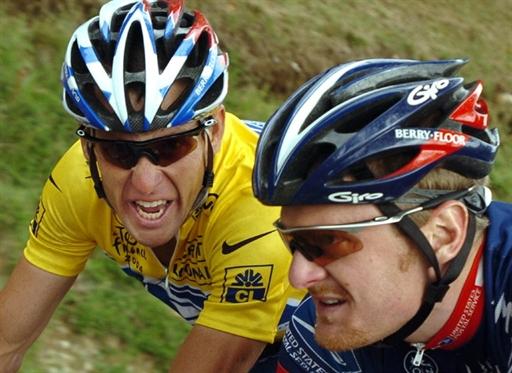US Postal backers could be under investigation
WSJ says FDA are to question whether investors knew about alleged doping practices

US Federal investigators looking into allegations of doping on the former US Postal Service team are said to be looking into whether the owners of Tailwind Sports, which owned the team, were aware of any doping.
The Wall Street Journal looked at the background of Tailwind and its participants. The moving force was Thomas Weisel, a former amateur cycling champion and investment banker. He set up Montgomery Sports in 1989, which put together the original USPS team in 1995. In 1999, he set up Tailwind with five other investors for about 2.5 million dollars.
The company never made a profit, however, losing between $200,000 and a million dollars a year, the WSJ said.
The doping allegations started almost immediately. At the 1999 Tour de France, Lance Armstrong tested positive for a corticosteroid, which he claimed was from a cream used for a saddle sore. The next year, French tv reporters found suspicious items in trash dumped by the team. The UCI cleared Armstrong and neither case resulted in any action.
However, it was enough to make sponsor US Postal Service nervous. Gail Sonnenberg, who was then senior vice president of sales, said that some USPS board members wanted to drop their sponsorship, but that Tailwind managers assured them there was no doping on the team, and that the French media was out to get Armstrong.
Weisel's attorney said his client would not respond to the WSJ story saying the questions they asked contained “statements or assertions” that are “factually inaccurate.”
Lemond
Get The Leadout Newsletter
The latest race content, interviews, features, reviews and expert buying guides, direct to your inbox!
The Tailwind owners were equally involved in squelching criticism from outside sources. When Greg Lemond publicly criticised Armstrong's involvement with trainer Dr. Michele Ferrari, he soon heard from Weisel. Lemond said he found Weisel's comments to be a threat. Days later, another Tailwind partner, Terry Lee, asked him to stop criticising Armstrong.
Landis
The Tailwind partners were also involved in the Floyd Fairness Fund, set up to finance Floyd Landis' defence after he tested positive for testosterone during the Tour de France 2006.
Landis claimed that he spent about $2 million dollars defending himself, with about 70 per cent of the funding coming from the Tailwind backers, including Weisel, John Bucksbaum, David Williams and Richard Cashin Jr.
James Cox Kennedy, of Cox Enterprises, was not part of Tailwind, but sponsored a fundraiser for the FFF and made a donation. He was one of many who thought Landis was telling the truth about not doping. “I believed him when he said he was innocent and then was highly disappointed when he later said he lied and cheated.”
Landis claimed that in the summer of 2008, he was doubtful of his chances of appealing his suspension. He discussed a plan with Williams, of Williams Trading LLC, to post a confessional video on YouTube, but the plan was dropped.
Williams later paid $200,000 to sponsor Landis' new team when he returned to racing in 2009. He was also an enthusiastic supporter of the Lance Armstrong's Foundation, pledging a million dollars to it. However, a dispute over the use of the foundation logo and discussion of a return of his donations, which did not happen, soured the relationship.
When Landis first considered his public confession, he discussed it with Williams, who encouraged him. Landis later cited Williams' support as one of his main grounds for going public.
Landis didn't stop there, but also filed a suit in US federal court under the False Claims Act. Weisel, Tailwind and Armstrong are among those named in the suit, which alleges that the US government through the US Postal Service was defrauded. If the charges are upheld, Landis could be entitled to a portion of any monetary damages awarded.